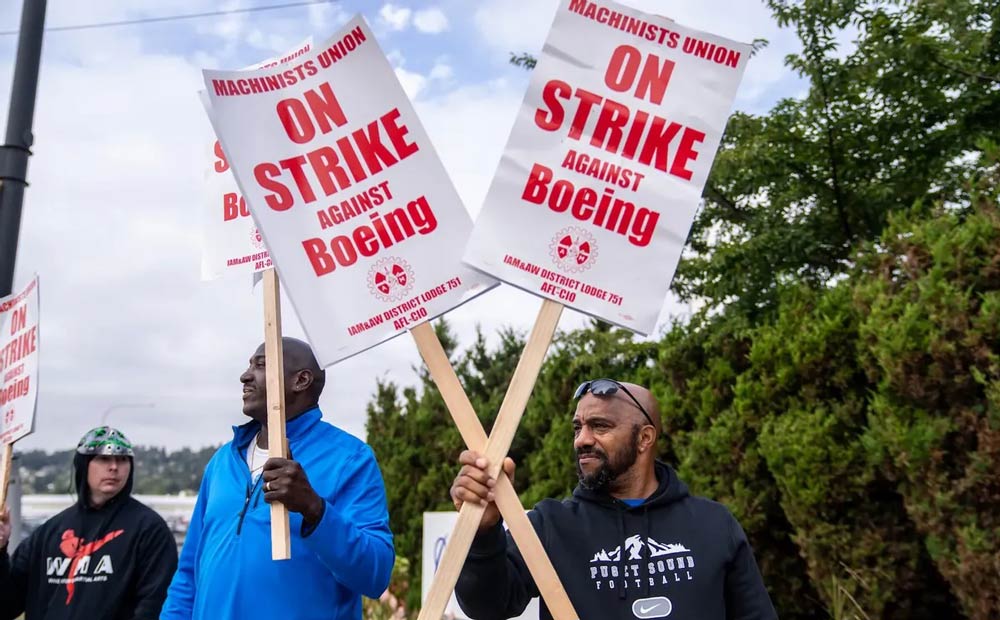Boeing has initiated the furlough of tens of thousands of employees due to an ongoing machinist strike. This decision follows the rejection of a proposed labor contract by over 30,000 machinists in Seattle and Oregon, leading to a walkout.
Key Developments
- Furlough Details: Boeing announced that U.S. executives, managers, and other staff will be furloughed, with affected employees taking one week off every four weeks during the strike.
- Contract Rejection: The machinists overwhelmingly voted against a contract that included a 25% raise, citing insufficient compensation to cover the rising cost of living and lack of pension restoration.
- Cost-Cutting Measures: In response, Boeing has frozen hiring and raises and temporarily let go of non-essential contractors.
- Leadership Statement: CEO Kelly Ortberg emphasized the need to preserve the company’s long-term future and navigate the current challenges. He and his leadership team will take pay cuts during the strike.
Financial Implications
The financial impact of the strike is uncertain, but it adds pressure on Boeing as it attempts to recover from past safety and quality issues and manage its $60 billion debt load. Activities critical to safety and production, such as the 787 Dreamliners, will continue.
Negotiations Continue
Negotiations with a mediator are ongoing, with both sides expressing frustration. The company aims to reach a resolution that addresses the concerns of its workforce while maintaining operational priorities.
For more updates, stay tuned to CNBC’s coverage on Boeing and the broader airline industry.











